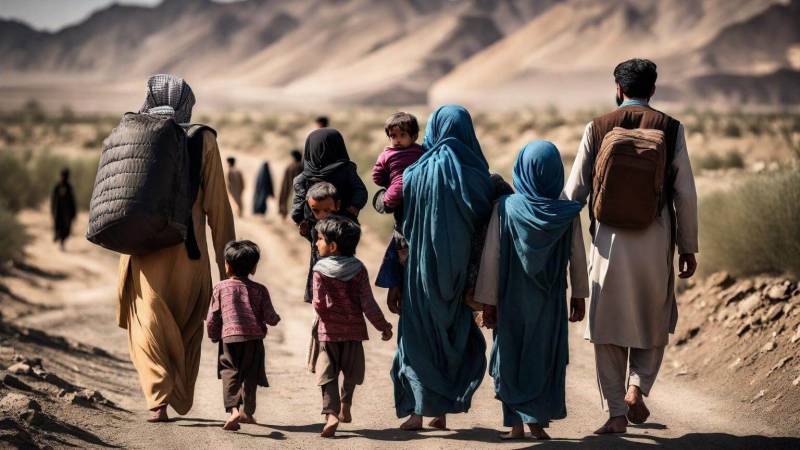
The United Nations High Commission for Refugees (UNHCR) has expressed concerns over Islamabad's decision to expel undocumented migrants, noting that it has particularly had an impact on Afghan nationals. Despite announcements to the contrary, actions by local authorities and others had created panic amongst even registered refugees or those bearing valid documents. It noted an exponential rise in arrests, detentions and deportations of Afghans in Pakistan by the authorities.
Those crossing over were exhausted from the arduous journey and needed emergency assistance.
In a statement issued on Tuesday, the UNHCR said that since Pakistan announced on October 3, 2023, that undocumented migrants and aliens had until October 31 to voluntarily return to their countries of origin without facing any consequences, an estimated 374,000 people, mostly Afghans, have left.
"Desperate women and children are among those who were not given a choice but to pack and leave."
As if this was not sufficient, UNHCR noted that the unexpected mass influx of refugees in Afghanistan was adding to the ongoing humanitarian crisis there as winter begins.
"Many Afghan returnees are vulnerable, including women and children who could lose their lives in a harsh winter if left without adequate shelter."
UNHCR staff operating in Afghanistan and humanitarian partners had scrambled to monitor and provide assistance to the large-scale influx of returning Afghans at the two official border crossings with Pakistan – Torkham, in Nangarhar province, and Spin Boldak, in Kandahar province.
"It is a daunting task on top of the ongoing humanitarian crises in Afghanistan, affecting over two-thirds of the population.
UNHCR said that its representatives had visited various locations in Khyber Pakhtunkhwa and Balochistan over the past two weeks, where Afghans were seen leaving in a rush. It did not matter if they were registered or documented, as follow-up actions, including reports of intimidation by local authorities and evictions by landlords, have created a sense of panic among them.
"The ongoing pressure to return has caused severe distress within the communities despite the assurances received from the government of Pakistan."
The global refugees body noted that many refugees complained of harassment, extortion and mistreatment.
The UNHCR reiterated that any return of refugees or asylum seekers to Afghanistan should be voluntary, safe and dignified, irrespective of their legal status in Pakistan.
"We have urged the government of Pakistan to put in place a screening mechanism to identify individuals in need of international protection," UNHCR suggested, adding that they had extended support to Pakistan to set up a system that addresses the legitimate concerns of the government while ensuring safety and security for Afghans seeking refuge on its territory.
In Afghanistan, UNHCR staff and humanitarian partners are scrambling to monitor and provide assistance to the large-scale influx of returning Afghans arriving at two official border crossings with Pakistan – Torkham, in Nangarhar province, and Spin Boldak, in Kandahar province.
"It is a daunting task on top of the ongoing humanitarian crises in Afghanistan affecting over two-thirds of the population."

